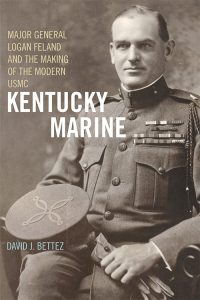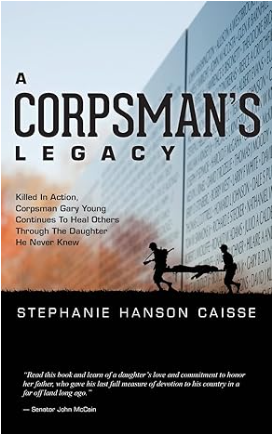Kentucky Marine – Major General Logan Feland and the Making of the Modern USMC by David J. Bettez, Winner, Marine Corps Heritage Foundation’s Colonel Joseph Alexander Award
—
Always Faithful, but Forgotten to History
New book examines the life career of one of the most influential figures
 Lexington, KY—Soldiers of the Sea serve with a quiet dignity that belies the extraordinary feats they accomplish. Major General Logan Feland, an influential and significant figure in the history of the United States Marine Corps, served his country and his Corps in a career that spanned the Spanish-American War, World War I, and the Nicaraguan Revolution, and which nearly concluded with an appointment as Commandant of the Marine Corps.
Lexington, KY—Soldiers of the Sea serve with a quiet dignity that belies the extraordinary feats they accomplish. Major General Logan Feland, an influential and significant figure in the history of the United States Marine Corps, served his country and his Corps in a career that spanned the Spanish-American War, World War I, and the Nicaraguan Revolution, and which nearly concluded with an appointment as Commandant of the Marine Corps.
In Kentucky Marine: Major General Logan Feland and the Making of the Modern USMC, by David J. Bettez, now available in paperback, Feland has finally received the long-overdue biography brings this quiet, intelligent, acerbic, and brave strategist and technician to the attention of a new generation. Drawing on personal letters, contemporary news articles, official communications, and confidential correspondence, Bettez captures Feland as a transitional figure in Marine Corps history, reflecting its changing nature during the early twentieth century.
A native of Hopkinsville, Kentucky, Feland led a momentous life. His service coincided with the United States’ expansion as a global power, with territories and responsibilities around the world. In an expanding Marine Corps, which was often the tip of the spear in times of crisis, Feland became one of the USMC’s most highly ranked and regarded officers.
Decorated with the Distinguished Service Cross for his heroic actions during the battle of Belleau Wood in World War I, Feland was specially selected to command the hunt for rebel leader Augusto César Sandino during the Nicaraguan revolution from 1927 to 1929—an operation that helped to establish the Marines’ reputation in guerrilla warfare and search-and- capture missions. He was one of the first instructors in the USMC’s Advanced Base Force, which was the forerunner of the amphibious assault force mission the Marines adopted in World War II, and during his tenure as an officer, the Corps expanded exponentially in manpower, influence, and prestige. Yet, despite Feland’s role in the development of the modern Marine Corps, he has been largely ignored in the Despite failing to achieve the ultimate goal of Commandant, Major General Logan Feland could be proud of his service to the Corps and to his country. He had proved his bravery and his willingness to step into and succeed in leadership positions in the Corps. Had Feland been named Commandant of the Marine Corps in 1930 in place of Brigadier General Ben Fuller, Feland’s place in the storied history of the Marine Corps would have been assured. Kentucky Marine was named the winner of the Marine Corps Heritage Foundation’s 2015 Colonel Joseph Alexander Award.
David J. Bettez served as director of the Office of International Affairs at the University of Kentucky and is the author of Kentucky and the Great War: World War I on the Home Front.
Available at kentuckypress.com.

 Our legacy lives through the stories we tell. The Suck Life wants yours! Make Chesty proud!
Our legacy lives through the stories we tell. The Suck Life wants yours! Make Chesty proud!



 Semper Fidelis
Semper Fidelis

